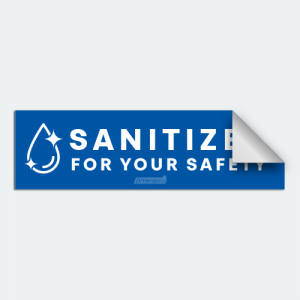DIYWraps and our parent company, Identity Group, LLC will NOT print any graphics featuring copyrighted images. This includes trademarked logos that you or your business do not own, pop culture characters, and other designs that are protected under Intellectual Property laws. Please be sure to verify that any images you are using in your custom design are not protected by any copyright laws. Identity Group, LLC holds the right to cancel any orders that do not adhere to these rules. Many websites offer fair use images at no or low cost. Be sure to verify that any images purchased/downloaded are free from any copyright restrictions. See below for in-depth terms and conditions relating to copyrighted images.
Terms & Conditions
By uploading and applying your Image (“Image”), you warrant and represent that you own or otherwise control all of the rights to your Image, including all the rights necessary for you to provide, post, upload, input or submit the Image, and to transfer all such rights to Identity Group, LLC. By uploading and posting an Image that contains images, photographs, pictures or that are otherwise graphical in whole or in part (“Images”), you warrant and represent that (a) you are the copyright owner of such Images, or that the copyright owner of such Images has granted you permission to use such Images or any content and/or images contained in such Images consistent with the manner and purpose of your use, and (b) that each person depicted in such Images, if any, has provided consent to the use of the Images, including, by way of example, the distribution, public display and reproduction of such Images.
Before you upload an image, make sure that the image falls in one of the four categories:
Own work: You own all rights to the image, usually meaning that you created it entirely yourself.
Licensed: You can prove that the copyright holder has released the image under an acceptable license. Note that images that are licensed for use only on certain “channels”, or only for non-commercial or educational use, or under a license that doesn’t allow for the creation of modified/derived works, are unsuitable. When in doubt, do not upload copyrighted images.
Public domain: You can prove that the image is in the public domain, i.e. free of all copyrights.
Fair use: You believe that the image meets the special conditions for non-free content, which exceptionally allow the use of unlicensed material, and you can provide an explicit non-free use rationale explaining why and how you intend to use it.
User-created images — Identity Group, LLC encourages users to upload their own images. Such images can include photographs which you yourself took. The legal rights for images generally lie with the photographer, not the subject. Images with you, friends, or family prominently featured in a way that distracts from the image topic are not recommended. Some images may contain trademarked logos incidentally (or purposely if the image is either licensed, covered under freedom of panorama, or being too simple to be copyrightable). If this is the case, please tag it with ™.
Licensing —
You’ve obtained the right (paid or free) to exploit the image in all media throughout the universe for a specified amount of time; in the case of a pre-existing free license, if the place where you found the image does not declare a pre-existing free license, yet allows use of its content under terms commonly instituted by them, it must explicitly declare that commercial use and modification is permitted. If it does not so declare, you must assume that you may not use the image unless you obtain verification or permission from the copyright holder.
Public domain —
Public domain images are not copyrighted, and copyright law does not restrict their use in any way. Images may be placed into the public domain by their creators, or they may be public domain because they are ineligible for copyright or because their copyright expired. In the U.S., copyright has expired on any work published anywhere before January 1, 1923. Although U.S. copyrights have also expired for many works published since then, the rules for determining expiration are complex. Free images should not be watermarked, distorted, have any credits or titles in the image itself or anything else that would hamper their free use, unless, of course, the image is intended to demonstrate watermarking, distortion, titles, etc. and is used in the related article. Exceptions may be made for historic images when the credit or title forms an integral part of the composition. Historical images in the public domain sometimes are out of focus; display dye dropouts, dust or scratches; or evidence of the printing process used. All photo credits should be in a summary on the image description page. These may be tagged ©.
Privacy rights —
When taking pictures of identifiable people, the subject’s consent is not usually needed for straightforward photographs taken in a public place, but is often needed for photographs taken in a private place. This type of consent is sometimes called a model release, and it is unrelated to the photographer’s copyright. Because of the expectation of privacy, the consent of the subject should normally be sought before uploading any photograph featuring an identifiable individual that has been taken in a private place, whether or not the subject is named. Even in countries that have no law of privacy, there is a moral obligation on us not to upload photographs which infringe the subject’s reasonable expectation of privacy. If you upload a self-portrait, your consent is presumed.





